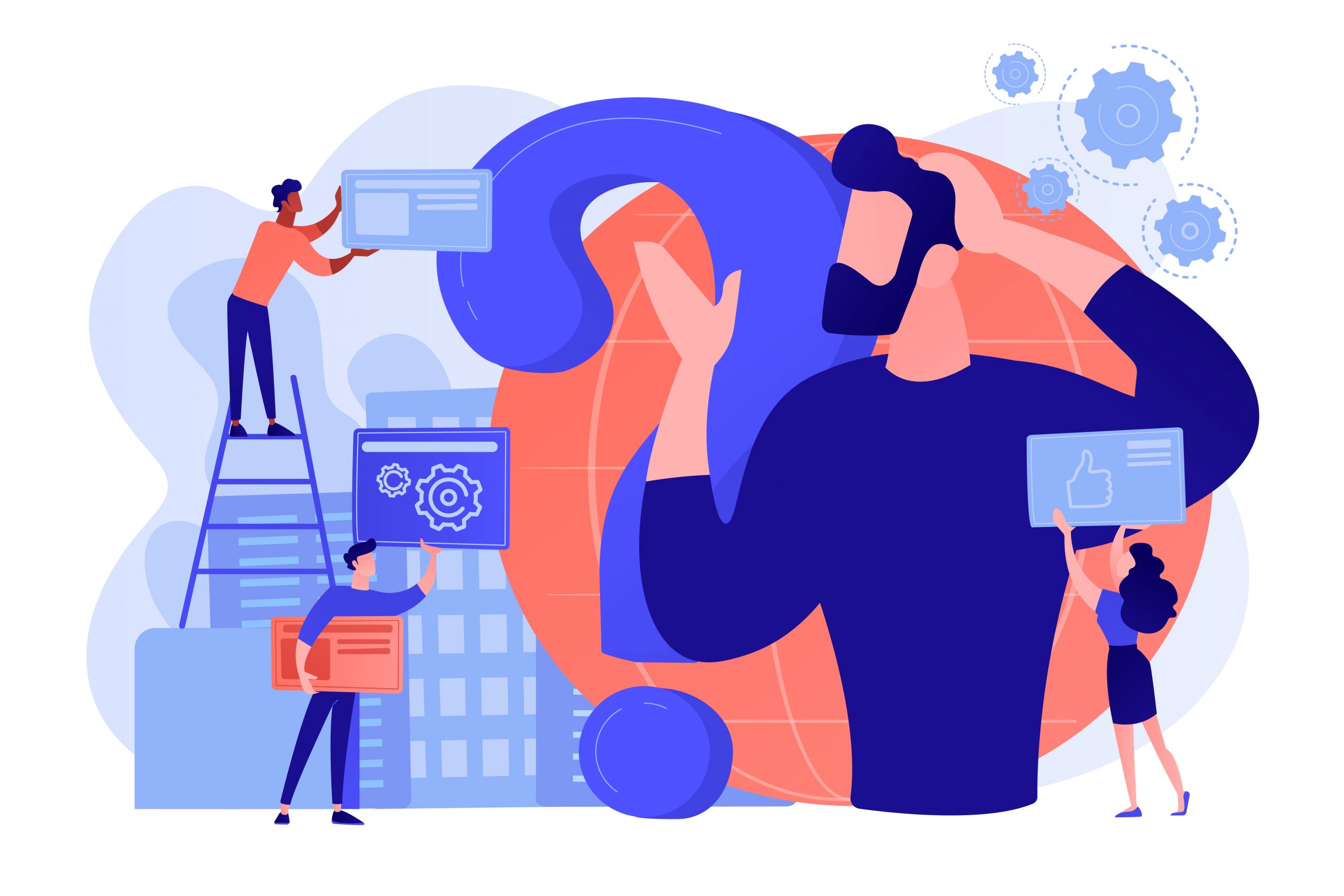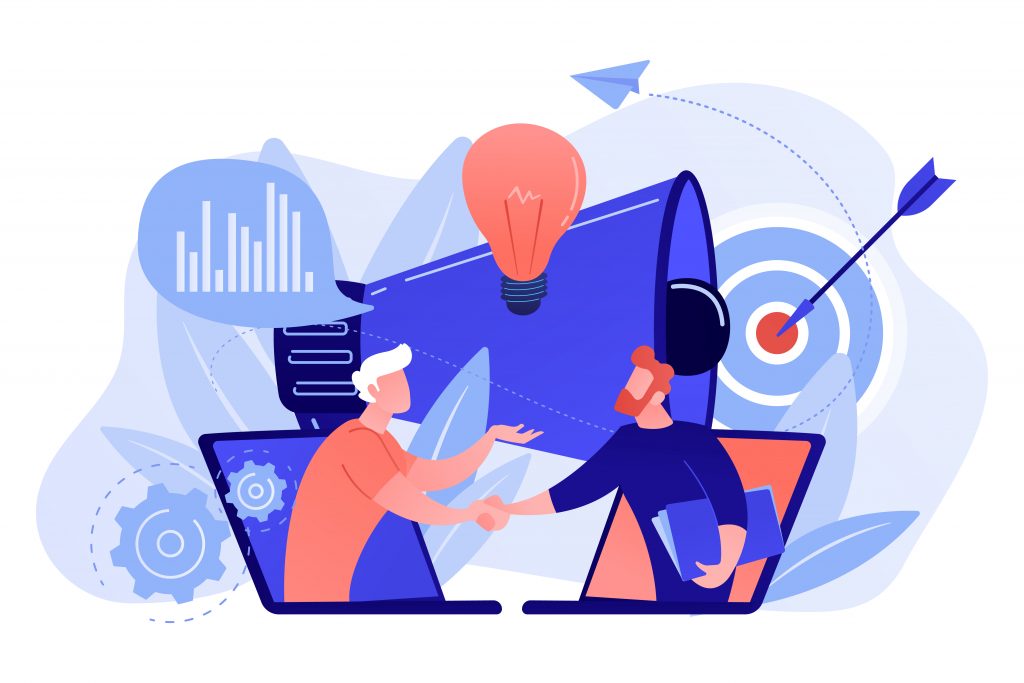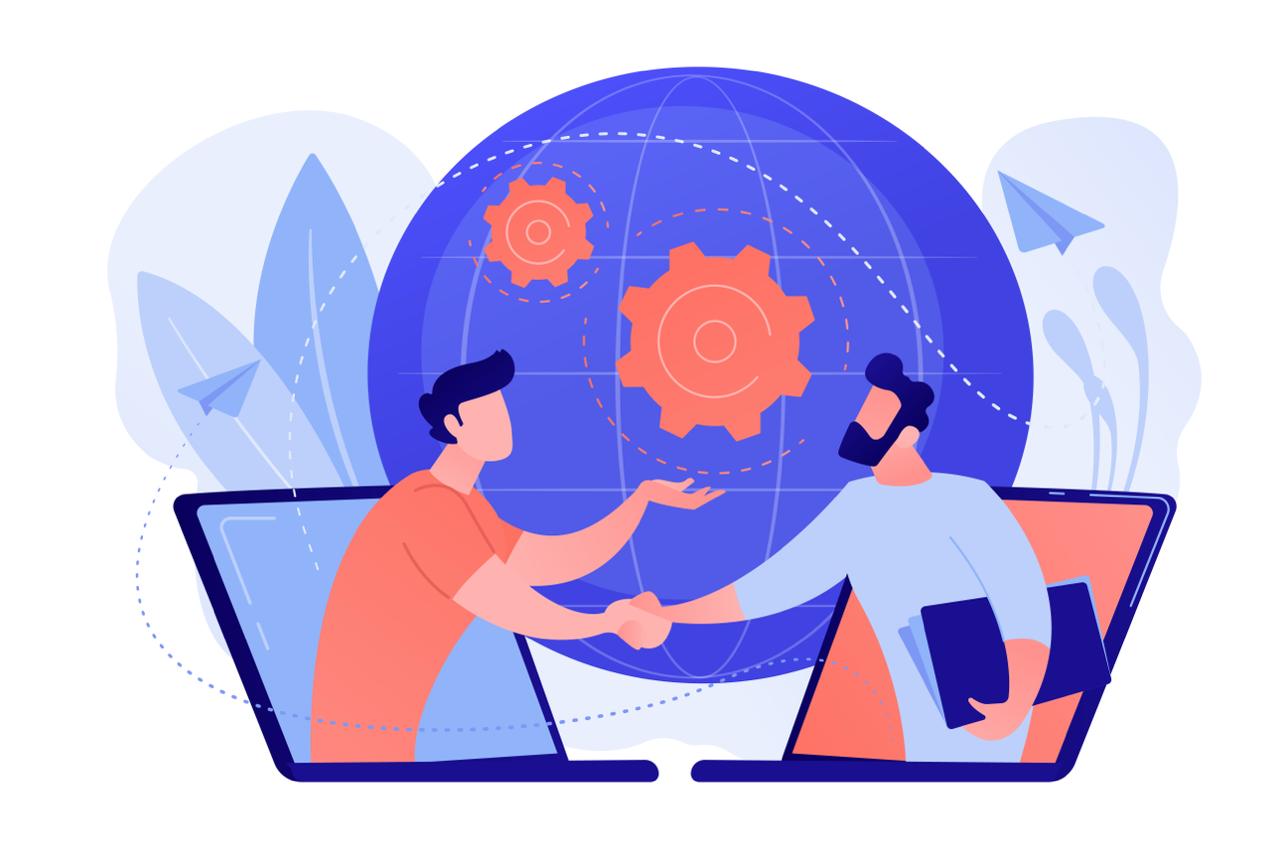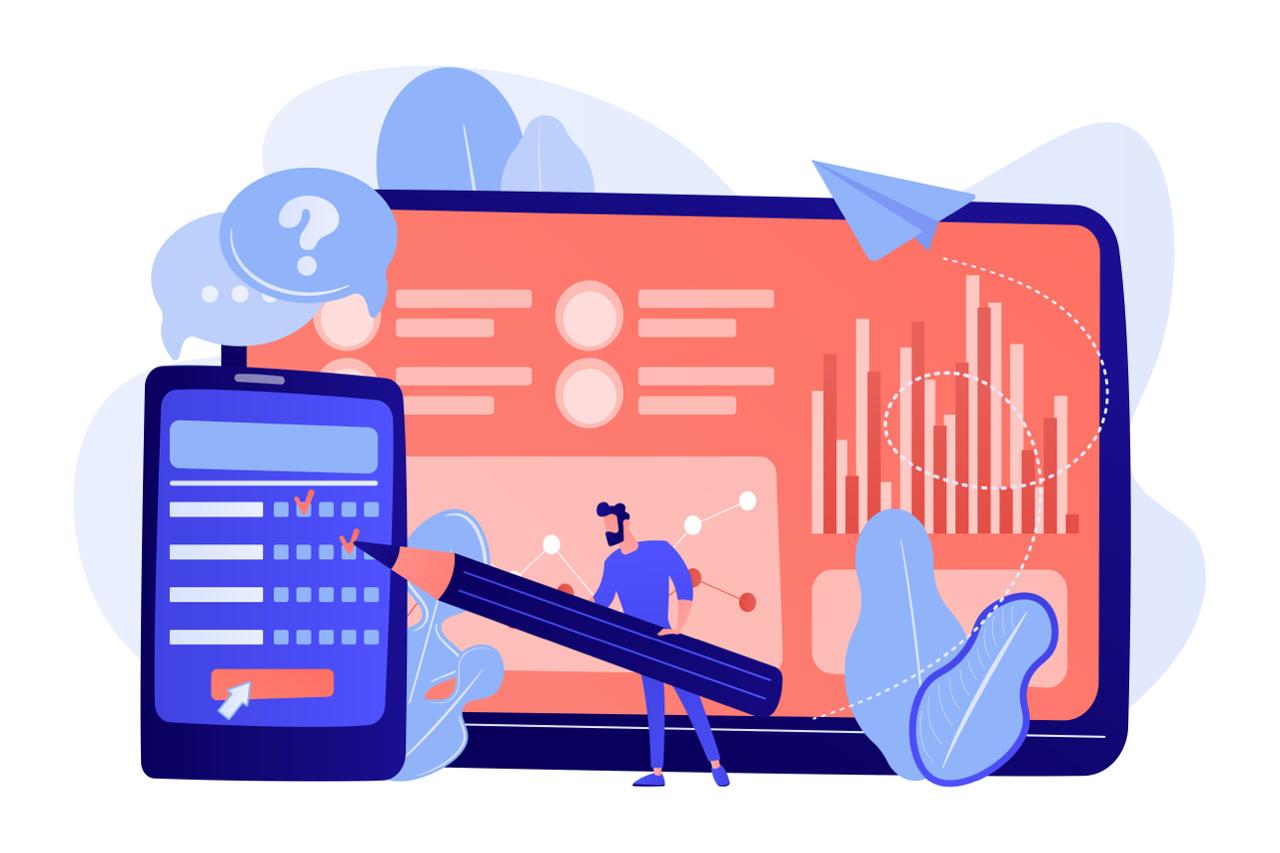
How do you assess a candidate’s soft skills?
In today’s competitive job market, employers increasingly recognize the importance of soft skills in creating a successful, dynamic workforce. But…
In today’s competitive job market, employers increasingly recognize the importance of soft skills in creating a successful, dynamic workforce. But what are soft skills, and why do they matter? Simply put, soft skills refer to personal attributes like communication, problem-solving, and teamwork that shape how individuals interact and collaborate. What soft skills are employers looking for? Skills such as adaptability, emotional intelligence, and leadership are essential in navigating the modern workplace. As a recruiter or hiring manager, understanding how to assess soft skills is crucial, whether through soft skills interviews, targeted soft skills tests, or soft skills assessments. These tools help identify candidates who not only excel in their technical knowledge but also thrive in dynamic team environments. In this post, we’ll dive into the key soft skills employers look for, discuss how to measure soft skills, and provide practical tips for assessing soft skills effectively throughout the interview process.
What Are Soft Skills?
Soft skills are the non-technical abilities that enable individuals to interact effectively and harmoniously with others. Unlike hard skills, which focus on specific knowledge and abilities required to perform a job, soft skills encompass a range of personal attributes, including communication, teamwork, problem-solving, adaptability, and emotional intelligence. These skills are crucial for building strong relationships, fostering collaboration, and contributing to a positive workplace culture.
Examples of soft skills include the ability to communicate clearly, listen actively, manage time efficiently, and resolve conflicts. In addition, skills such as critical thinking, leadership, creativity, and empathy are highly valued by employers across various industries. Soft skills are essential for employees to work effectively in diverse teams, adapt to changing environments, and navigate the complexities of modern workspaces.
For employers, assessing soft skills can be challenging but necessary, as they play a significant role in employee performance and long-term success. With the rise of remote work and increasing collaboration across digital platforms, these interpersonal skills have become even more vital. Soft skills can be developed over time, and many companies are now offering soft skills training to enhance team dynamics and productivity.
Hard Skills vs. Soft Skills
Hard skills and soft skills are both essential for success in the workplace, but they differ in nature and how they are acquired. Hard skills are specific, teachable abilities that can be measured and quantified. Workers acquire hard skills through formal education, training programs, and hands-on experience. These skills are often job-specific and can be tested or assessed through exams or practical tasks. For instance, skills like computer programming, data analysis, or accounting are hard skills that are critical to many professions. Employers often prioritize these skills when hiring, as they directly relate to the performance of a specific role.
On the other hand, soft skills refer to the interpersonal and emotional abilities that help individuals interact effectively with others. Unlike hard skills, soft skills are not easily quantifiable and are often developed through life experiences. They include empathy, teamwork, communication, and problem-solving. For example, a doctor requires hard skills such as a deep understanding of medical knowledge and the ability to perform surgery, but soft skills like empathy and active listening are crucial when interacting with patients. While hard skills can be taught and improved over time, soft skills are more complex and take longer to develop.
Soft Skills Examples: Understanding What Makes a Great Employee
Soft skills are the non-technical, interpersonal abilities that influence how individuals interact with others in the workplace. These skills are highly valued because they determine how well people work together, communicate, and contribute to a positive workplace culture. Unlike hard skills, which are teachable and measurable, soft skills are often cultivated through life experience and personal development. Below are some key examples of soft skills that employers value most and why they are crucial for success in today’s work environment.
1. Communication
Effective communication is essential for any professional role. It includes both verbal and written communication skills, along with active listening and understanding non-verbal cues. Being able to articulate thoughts clearly, listen attentively, and adjust communication styles to fit different audiences helps employees foster strong relationships and avoid misunderstandings. Whether you’re presenting to a team, emailing a client, or engaging in a one-on-one discussion, communication is key to conveying ideas and achieving shared goals.
2. Teamwork
In most jobs, collaboration is crucial to success. Teamwork refers to working together towards a common goal, sharing ideas, and providing support to colleagues. Employees who excel in teamwork understand the importance of cooperation, listening to others’ perspectives, and maintaining a positive attitude. A great team player is willing to step up when needed and provide constructive feedback, which fosters an environment of trust and respect.
3. Problem-solving
In the workplace, challenges are inevitable. Being a strong problem-solver means having the ability to identify problems, analyze them critically, and devise practical solutions. It involves creativity, critical thinking, and the willingness to try new approaches. Employees with this soft skill can think on their feet and help their teams navigate obstacles in innovative ways.
4. Time Management
Managing time effectively is one of the most valuable soft skills in today’s fast-paced work environment. Time management allows individuals to prioritize tasks, meet deadlines, and achieve a work-life balance. Employees skilled in time management are organized and proactive, ensuring that they complete tasks on time while avoiding burnout.
5. Leadership
Leadership is not just about managing a team—it’s about inspiring others to work towards a shared vision. Strong leaders possess a variety of qualities such as empathy, motivation, and the ability to make decisions under pressure. They are good communicators and decision-makers, and they foster a supportive, inclusive environment where team members feel valued and empowered to succeed.
6. Adaptability
In a constantly changing world, adaptability is a crucial skill. Employees who are adaptable can handle unexpected challenges, switch between tasks, and learn new skills as necessary. This soft skill is particularly valuable in industries where change is frequent and quick. Being flexible, open to new ideas, and willing to adjust to different work environments or priorities is vital for continued success.
7. Creativity
Creativity is not just for artists. In any workplace, creativity enables employees to approach problems from unique angles, develop new strategies, and contribute fresh ideas. Creative employees think outside the box and are often the driving force behind innovation and process improvements.
8. Empathy
Empathy is the ability to understand and share the feelings of others. In a professional setting, this soft skill helps build strong relationships by fostering trust and improving communication. Empathetic employees are good at resolving conflicts and providing emotional support to coworkers, which can lead to a more collaborative and positive workplace culture.
9. Conflict Resolution
Conflict resolution is an essential skill, especially in team-based environments. Being able to mediate disputes, listen to both sides, and find mutually beneficial solutions is a trait that employers highly value. Employees skilled in conflict resolution maintain peace, ensure productive conversations, and help maintain a harmonious atmosphere in the workplace.
10. Active Listening
Active listening involves giving full attention to the speaker, understanding their message, and responding thoughtfully. It goes beyond simply hearing words—it’s about being present and engaged. This soft skill is essential for effective communication, whether you’re in a team meeting or dealing with customer inquiries.
11. Critical Thinking
Critical thinking is the ability to analyze situations objectively and make informed decisions. Employees with strong critical thinking skills assess problems, gather information, and evaluate potential solutions. This ability to think critically allows employees to navigate complex issues and make decisions that align with both immediate needs and long-term goals.
12. Cultural Competence
Cultural competence involves understanding, respecting, and working effectively with people from diverse backgrounds. This skill is increasingly important in global work environments and helps create inclusive and respectful workplaces. Individuals who demonstrate cultural competence are aware of biases, adapt their behavior to different cultural norms, and encourage diversity in teams.
13. Customer Service
Providing excellent customer service is about more than answering questions—it’s about understanding and anticipating customer needs, offering solutions, and leaving a positive impression. Employees with strong customer service skills are attentive, patient, and good at solving problems, ensuring customer satisfaction and loyalty.
14. Decision-Making
Good decision-making involves evaluating available information, considering alternatives, and selecting the best course of action. This skill requires critical thinking and sound judgment. In high-pressure situations, being able to make quick, informed decisions can have a significant impact on a company’s success.
15. Emotional Intelligence
Emotional intelligence (EQ) is the ability to understand and manage your own emotions and those of others. High EQ is critical for managing stress, building relationships, and navigating challenging situations. Employees with high emotional intelligence tend to have strong interpersonal relationships, excel in leadership roles, and maintain a calm demeanor in stressful environments.
16. Flexibility
Flexibility is the ability to adapt to changing circumstances. Employees who are flexible can handle shifting priorities, work with diverse teams, and adjust to new processes. This skill is particularly useful in dynamic industries or when managing multiple projects with varying timelines.
17. Goal-setting
Setting and achieving goals is a fundamental soft skill that helps employees stay focused and motivated. Goal-setting encourages individuals to track progress, measure success, and overcome obstacles. Employees who excel at goal-setting are proactive, organized, and always working towards improving their performance.
18. Interpersonal Skills
Interpersonal skills are the abilities we use to interact with others. These include communication, empathy, and the ability to collaborate. Strong interpersonal skills make it easier to build relationships, resolve conflicts, and work productively in teams.
19. Negotiation
Negotiation involves discussing and reaching agreements in a way that benefits all parties. Employees with strong negotiation skills can advocate for their ideas, find common ground, and achieve outcomes that satisfy everyone involved. This soft skill is valuable in many contexts, from internal team decisions to external business deals.
20. Patience
Patience is the ability to stay calm and composed when things don’t go as planned. Employees who demonstrate patience can handle delays, mistakes, and difficult customers without becoming frustrated. This skill helps build resilience and maintain productivity during challenging situations.
21. Persuasion
Persuasion is the ability to influence others’ opinions or actions. A skilled persuader can present logical arguments, appeal to emotions, and motivate others to act. This soft skill is particularly useful in sales, marketing, and leadership roles.
22. Positive Attitude
A positive attitude involves maintaining optimism, even when faced with setbacks. Employees with a positive mindset are more likely to overcome challenges, inspire others, and contribute to a healthy and productive work environment.
23. Presentation Skills
Being able to effectively present ideas is a valuable soft skill. Whether in front of clients, executives, or teammates, presentation skills include clear communication, engaging visuals, and the ability to make compelling arguments that influence decisions.
24. Self-motivation
Self-motivation is the ability to drive oneself to accomplish tasks without external pressure. Motivated employees are proactive, goal-oriented, and can stay on track even without constant supervision. This soft skill is crucial for independent work and long-term career success.
25. Stress Management
Managing stress is vital for maintaining productivity and well-being. Employees who are skilled in stress management can stay focused under pressure, manage emotions effectively, and maintain a positive outlook during challenging times. This skill helps prevent burnout and contributes to a healthy work-life balance.

Why Soft Skills Matter
In today’s competitive job market, soft skills are often the differentiating factor between good and great employees. While hard skills like technical knowledge and expertise can get a foot in the door, it’s soft skills that truly determine how well someone can thrive and contribute to a team. These skills, which include communication, empathy, adaptability, and problem-solving, are essential for building relationships, fostering collaboration, and driving productivity in the workplace.
Employers highly value soft skills because they enable employees to effectively interact with colleagues, handle challenges, and adapt to changes. For instance, a worker who communicates clearly and works well under pressure is an asset, especially in fast-paced or customer-facing roles. Soft skills also promote a positive workplace culture, encouraging trust, respect, and open dialogue, which leads to greater job satisfaction and retention.
Moreover, soft skills are critical for leadership roles. Strong leaders must have emotional intelligence, be able to motivate teams, and navigate conflicts diplomatically. In an increasingly digital and remote work environment, where direct supervision is limited, the ability to manage oneself and collaborate with others across various platforms is more important than ever. Simply put, soft skills are essential for long-term career success and organizational growth.
Methods for Assessing Soft Skills
Assessing soft skills can be challenging because they are often subjective and intangible. However, there are several effective methods to evaluate these qualities during the hiring process.
Behavioral Interview Questions are one of the most common techniques used to assess soft skills. These questions focus on past experiences and require candidates to provide specific examples of how they’ve handled situations that demonstrate their communication, teamwork, or problem-solving abilities. For example, asking, “Tell me about a time when you had to resolve a conflict at work” helps employers gauge a candidate’s conflict resolution and emotional intelligence.
Situational Interview Questions ask candidates to explain how they would handle hypothetical scenarios, providing insight into their decision-making and adaptability. Questions like, “How would you handle a difficult client?” help employers assess a candidate’s ability to think on their feet and manage stress.
Observation During Interviews is another valuable method. Interviewers can observe a candidate’s body language, communication style, and reactions to various interview questions. Subtle cues like eye contact, tone of voice, and active listening can reveal much about a candidate’s interpersonal skills and empathy.
Using these methods together allows employers to form a more comprehensive picture of a candidate’s soft skills, crucial for success in today’s work environments.
Tools for Soft Skills Assessment
Assessing soft skills requires specific tools that go beyond traditional interview questions. By using a variety of techniques, employers can obtain a clearer, more accurate view of a candidate’s interpersonal abilities and emotional intelligence. Here are some effective tools for assessing soft skills:
- Psychometric Tests: These standardized tests assess a candidate’s emotional intelligence, problem-solving abilities, and communication skills. Tools like the Emotional Intelligence Appraisal and Gallup StrengthsFinder help measure key aspects of soft skills by evaluating personality traits and cognitive abilities in real-world contexts.
- Behavioral Interview Assessments: Structured interview platforms like Interview Mocha or HireVue use AI-driven assessments to evaluate a candidate’s responses to behavioral interview questions. These platforms help measure decision-making, leadership, and communication skills by analyzing the depth and quality of responses.
- Situational Judgment Tests (SJTs): Tools like Toggl Hire and TestGorilla offer customizable SJT assessments that place candidates in hypothetical job-related scenarios to test their critical thinking, adaptability, and conflict resolution abilities. These tools provide insights into how candidates might react in real work situations.
- 360-Degree Feedback Tools: Platforms like Culture Amp and Lattice provide continuous feedback from multiple sources—peers, managers, and direct reports. This method is ideal for assessing ongoing leadership, collaboration, and interpersonal skills within a team environment.
- Gamified Assessments: Mettl and Pymetrics use gamification to assess soft skills in a fun, interactive way. These tools simulate work scenarios, allowing candidates to demonstrate their adaptability, communication, and problem-solving skills in a non-traditional format.
- Self-Assessment Tools: Self-assessment tools allow candidates to evaluate their own soft skills. While this method provides valuable insight into how candidates perceive themselves, it should be supplemented by other objective assessments for accuracy.
These tools, when used together, provide a comprehensive evaluation of a candidate’s soft skills, enabling employers to make informed hiring decisions.
Tips for Structuring Interviews to Assess Soft Skills
When structuring interviews to assess soft skills, it’s essential to go beyond traditional questions about qualifications and experience. Here are some effective tips to help evaluate candidates’ interpersonal abilities and emotional intelligence during the interview process:
- Use Behavioral and Situational Questions: Ask candidates to describe past situations where they demonstrated key soft skills, such as teamwork, conflict resolution, or leadership. For example, ask, “Tell me about a time when you had to resolve a disagreement at work” to assess their communication and empathy.
- Incorporate Role-Playing or Simulations: Simulate real workplace scenarios that require candidates to demonstrate problem-solving, adaptability, and collaboration. This provides insight into how they might handle challenges in the job.
- Observe Body Language and Communication: Pay attention to candidates’ non-verbal cues, such as eye contact, tone of voice, and posture. These can reveal a lot about their active listening, confidence, and emotional intelligence.
- Ask Open-Ended Questions: Use questions that encourage candidates to share their thought processes. For instance, “How do you handle stress during tight deadlines?” This helps gauge their stress management and decision-making abilities.
- Include Peer Interviews: Involve team members in the interview process to assess how candidates interact with others and fit into the company culture.
By integrating these techniques, you can effectively assess the soft skills that are essential for long-term success in the workplace.
Conclusion
Assessing soft skills is crucial for hiring candidates who will thrive in dynamic, collaborative work environments. Using structured interviews, role-playing scenarios, and behavioral questions allows you to effectively evaluate a candidate’s communication, problem-solving, adaptability, and other key soft skills. However, identifying and assessing these skills can be challenging without the right approach or tools.
If you’re looking to streamline your interview process and hire the best candidates, we can help. Our services specialize in structuring interviews to assess soft skills, ensuring you can identify the most capable and well-rounded individuals for your team. Let us support you in making informed hiring decisions, ensuring you find the perfect fit for your organization.
Our Blog
The latest news in our blog
HR Department and Building Corporate Culture
In modern companies, the role of the HR department has long gone beyond recruitment and personnel administration. Today, HR acts…
New Year’s Greetings From the Recruiting.by Team
The end of the year is not only a time to sum up but also a moment when it becomes…
A Complete Guide to Job Classification
The IT sector continues to develop actively, and with it, the diversity of positions, roles, and specializations within companies grows….
Contact
We’re available for the new projects



